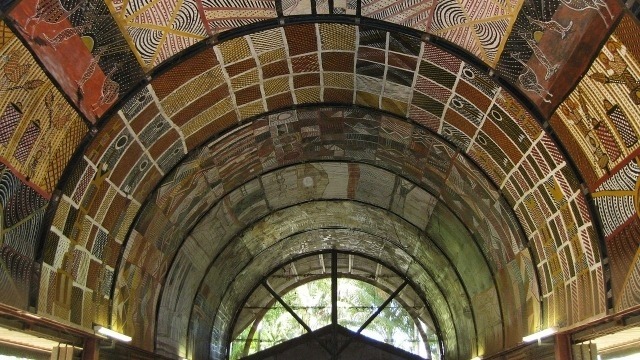Date and time
Fri 23 Aug 2019, 9 AM – 4.30 PM
Location
Menzies Library, Australian National University
Speakers
Donovan Schaefer
Laura Rademaker
Clare Monagle
Aileen Walsh
Katharine Massam
Joanna Cruickshank
Louise D’Arcens
Juanita Feros Ruys
Sally Treloyn
Convenors: Laura Rademaker and Clare Monagle.
Hosted by the ARC Laureate Program for the Deep Human Past & ANU College of Arts and Social Sciences
Co-hosted with the Faculty of Arts at Macquarie University & the Macquarie Node of the Centre of excellence for the History of Emotions
Keynote by Prof Donovan Schaefer, author of Religious Affects: Animality, Evolution and Power.
For Australian Indigenous people, knowledge, experiences and connection to what has been called the ‘sacred’ have often underpinned their claims to land, sovereignty and knowledge of the deep past. Experiences of settler-colonialism, therefore, have been not only an invasion of Indigenous land but also an attempt at elimination of Indigenous claims to ‘sacred’ knowledge, often dismissed as ‘myth’ or ‘superstition’. But the project of settler-colonialism was also ground in sacred claims. Colonialists understand their practices, their invasions, and, their erasures, as participation in a form of sacred or salvation history that privileged particular notions of whiteness, civilisation, Christianity and progress. These ideas of the sacred, as a mode to legitimacy, will be the subject of this symposium.
The symposium aims to highlight the importance of recognising experiences that subjects experience or know as ‘sacred’ in the historical record. Historian Minoru Hokari called for historians to experiment with ‘dangerous history’, by which he meant radically cross-cultural histories that engage with the historical practices and lived experiences of people of different cultures, including their experiences and knowledge of the sacred. Settler-colonial states, such as Australia, imbricate a myriad temporalities of sacredness at the same time and in the same place. How can we track these imbrications, and negotiate the relationships between them? An attentiveness to the sacred will enrich not only histories of settler-colonial contexts, but also histories of the so-called ‘old’ world. We are interested in what might be revealed by juxtaposing the ‘sacred’ histories of different peoples and places.
Our interest also obtains to the historical record writ large. Following philosopher’s Charles Taylor’s emphasis on ‘experience’ and the approaches of scholars such as, Donovan Schaefer, Robert Orsi and Alana Harris, we seek to engage with subjective understandings of experiences of the sacred. We are interested in expressions of the sacred as embedded in the domestic, the material and the embodied and how these can inform our histories. This symposium will also explore the practice of writing history through the lenses of materiality, affect and lived spiritual experience. It will bring together scholars from vastly different fields, but with a shared interest in the sacred in history to develop fresh approaches to what is being called ‘post-secular’ history as well as to ‘deep’ history seeking to engage with with Indigenous knowledge of the past, often expressed through the sacred and in ritual.
The day will also include a film screening and discussion of The Devil’s Country.


